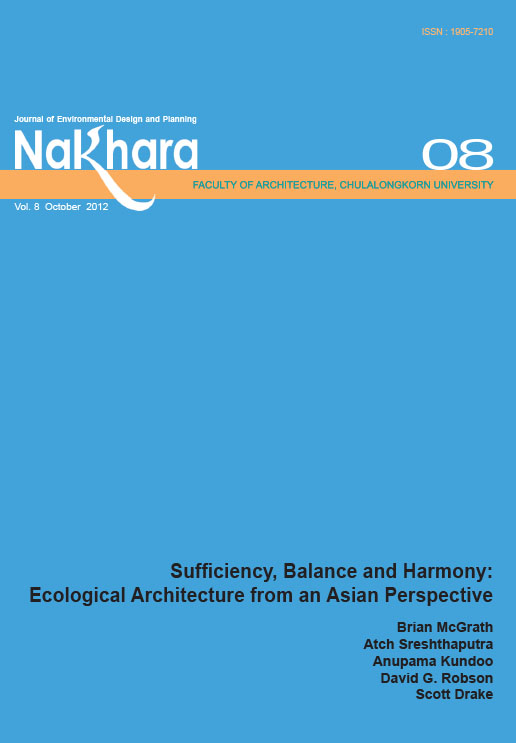The Signifi cance of Implicit Socio-cultural Values in Self-built Housing Transformation
Main Article Content
Abstract
Households’ spatial needs change along with inhabitation. At certain points in time, these needs may
reach a critical point when households decide to make changes in the usage of space. Moving or
transforming are the two basic options. Studies show that irrespective of location or context, scale or affl uence, users prefer transforming instead of moving. Moreover, transformation can occur more than once during inhabitation. Besides being identifi ed as economicaly a more sustainable option, there are several explicit reasons behind the preference for transformation. But this study goes deeper and investigates the impact of implicit values behind those explicit reasons through intensive ethnographic method and participant observation. Analyzing more than 200 transformation incidents in 63 self-built houses in the urban context of Dhaka, where these transformations takes place in abundance, this study fi nds that implicit socio-cultural values are indeed very signifi cant, and that explicit reasons tend to cover for them. The study also indicates that besides being economicaly sustainable, transformation also preserves social and cultural values that are necessary to achieve a socially sustainable system.

